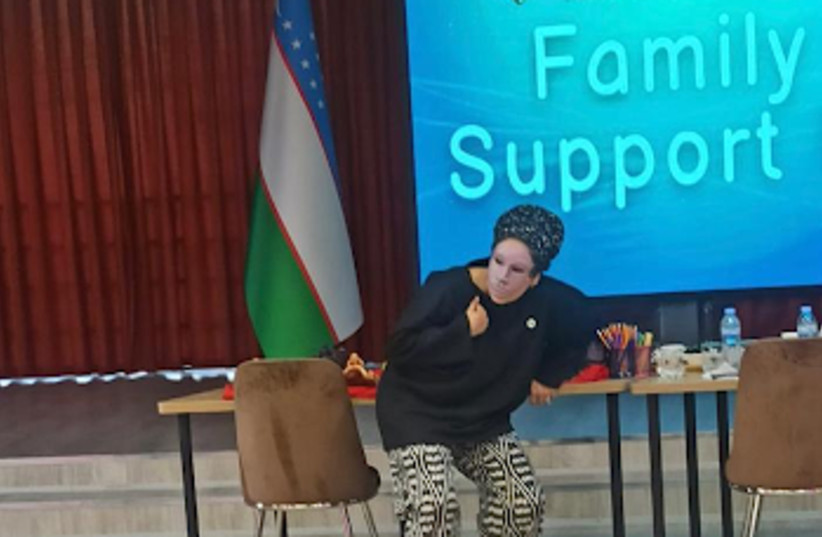The Embassy of Israel in Tashkent has set out to promote Social Diplomacy as a significant part of its ongoing agenda. Projects that not only bring the best of Israel to Uzbekistan, but also have a social impact aspect to it, present an important added value.
“Gender equality has always been a key component in the Embassy’s activities, from supporting young girls in pursuing STEM studies, to advocating against sexual harassment in public transportation” said Zehavit Ben Hillel, Israel Ambassador to Uzbekistan.
“As the issues of gender-based violence and domestic violence are taking more and more center stage in the vastly conservative Central Asian country, we are launching a new and exclusive project - opening a Family Support Center in cooperation with the Psychology Children’s Center under the National Guard of Uzbekistan,” she added.
In the center, the Embassy’s resident expert Dafna Furman is training psychologists and social workers on how to lead family group therapy sessions, to learn practical tools and methods and to create trust within the family, establish intra-family dialogue, and prevent family crises using communicative and non-violent methods.
In order to introduce innovative methods and models to the trainees, the Embassy decided to incorporate a theater workshop in which the participants used Commedia dell’Arte masks as a metaphor for the masks we all wear and explore the roles we play in everyday family life. The masks acts as a scaffolding tool to express emotional and communicative skills.

This unique workshop was lead together by Israeli actor and theater director Assi Shimony and by Furman.
The professionals participating in the course could experience the use of masks for the first time in the late February 2023 workshop, conducted by Shimony, co-founder of Psik Theater in Jerusalem.
In the workshop, Shimony and Furman illustrated the use of different masks we all use every day, as we relate to family members, friends, co-workers and so on. Little by little, the participants took off their own “masks”, and allowed a peek into their inner selves.
With the help of the masks, the trainees could talk openly about the roles expected of men, women and children within the patriarchal Uzbek culture. Through humor and emotion, the workshop enabled the participants to explore the realities of their lives and recognize the price everyone pays when they are forced to wear masks as a result of family and cultural expectations.
With the intimacy and honest dialogue created, the workshop from Israel provided a solid basis for the ongoing training, giving way to open discussions on complex and sensitive issues.
“We are very pleased that the innovative use of theatrical tools in the mask workshop, coming all the way from Israel to Uzbekistan, has proven invaluable indeed,” said Ambassador Ben Hillel.

